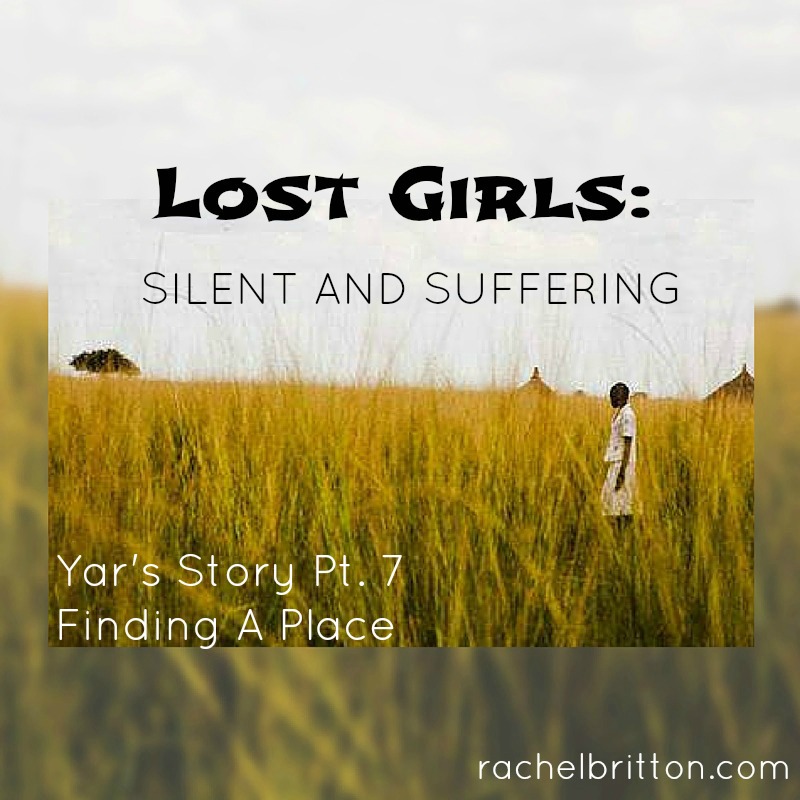When Yar read a posting in the Katuma Refugee Camp about Sudanese refugees being admitted to the United States, she jumped at the opportunity to change her circumstances. She applied for and was granted a visa to enter the United States. Not long thereafter, Yar and her brother were placed with a foster family in Brockton, Massachusetts. Survival quickly took on a very different meaning for Yar. If you missed the previous installment, you can read it here.
A young man greeted us at Logan Airport with a huge smile. Exhausted and hungry, I warily listened as he explained that he was a social worker who would introduce us to our foster family.
He spoke my language and shared that he, too, was from South Sudan, which immediately sparked my skepticism. After all, we had been warned that in America people try to kidnap children who do not know where they are going.
Having no choice, we followed him and soon thereafter met our foster mother, a young, kind woman from Liberia.
She brought us home to Brockton, Massachusetts, and we immediately fell into bed. Christmas came two days after our arrival, and the family treated us as one of them. We went to church on Christmas Eve and opened presents the following morning.
Overwhelmed, we slept lots. Rarely did we see our foster mom, who worked long hours seven days a week to support her family.
Little did I know that our true adjustment would come once school started.
Brockton High, with over 4,000 students enrolled, had five buildings, and I regularly found myself headed to class in the wrong building.
I felt lost all the time, even when I was in the right place.
Words sped past me at an incomprehensible pace, and often my classmates laughed at my confusion and my funny accent.
I made no friends and sat in the back of the room to hide my misery. The tears I shed as I left Africa returned. I cried for one and a half years.
Fortunately, my guidance counselor refused to give up on me. He checked in on me every day and did all he could to help me succeed.
He was the one who noticed the sore on my hand. I had cut myself, but my foster father, stuck on the couch watching television as he often did, did not feel it warranted a doctor visit.
The cut subsequently became infected. The sore caught Mr. Minchello’s attention and he began to ask questions.
I had never complained about my new home; after all, I had a roof over my head and food in my belly.
The look on his face, though, as I answered his methodical questions, told me that he did not feel all was well. Before we knew it, my brother and I were moved to a new foster home.
Although we had been in America for half a year, we never felt at home, yet at the same time we thought we had adjusted.
Little did we know how significantly our circumstances were about to change—again.
Our new foster family waited eagerly for our arrival and met the car before it had come to a complete halt. They rushed to throw their doors open for us. Unhurried warmth and kindness marked their every action.
My eyes, wide with disbelief, saw a well-cared-for home, with art work and photos dotting the walls and their children’s drawings hanging proudly on the refrigerator.
Immediately, they made it clear we would be full members of their family.
We must learn as adults, and teach our children, to be kind to those who are different from us. How often have I judged a person’s behavior yet I do not know their circumstances? We must break down our prejudices, stop feeling uncomfortable or disgusted because our status quo is upset, and instead stand up for those we see wrongly treated and welcome them as if family.
I am telling Yar’s story in installments every other Tuesday. Please visit my Lost Girls page to read the previous installments.
Linking up with Kelly Balarie at #RaRaLinkup, Crystal Storms at #IntentionalTuesday,

